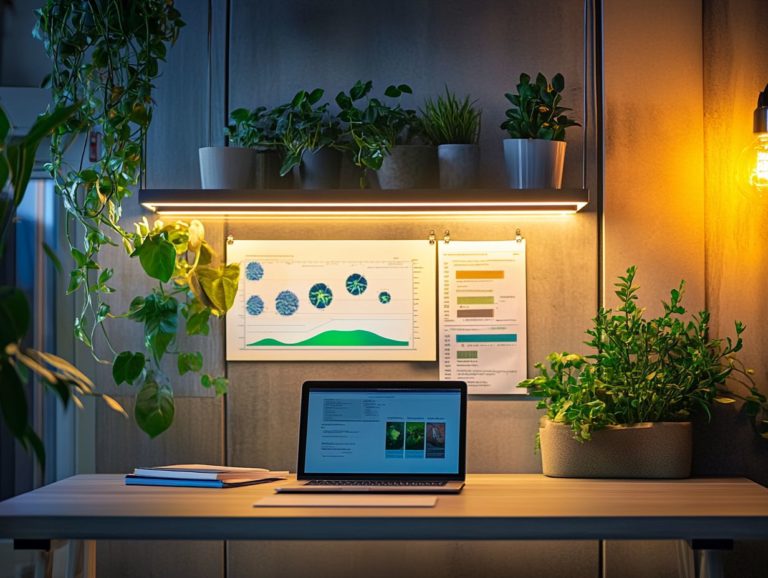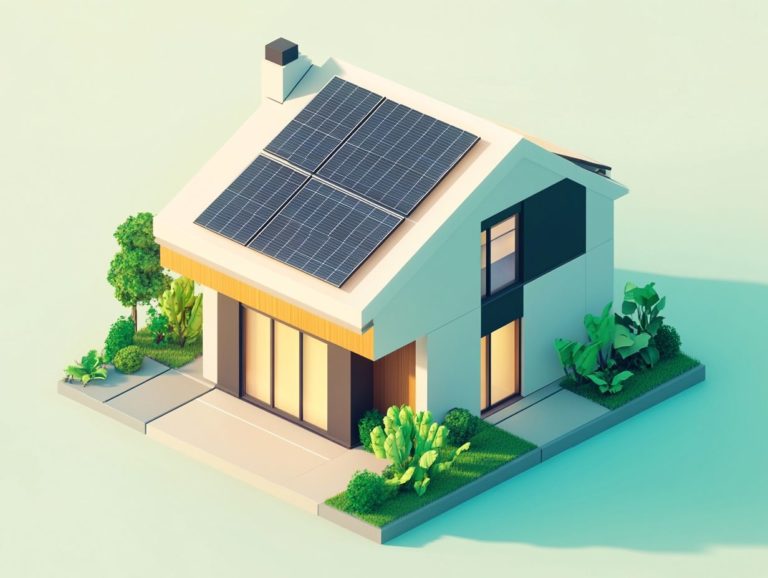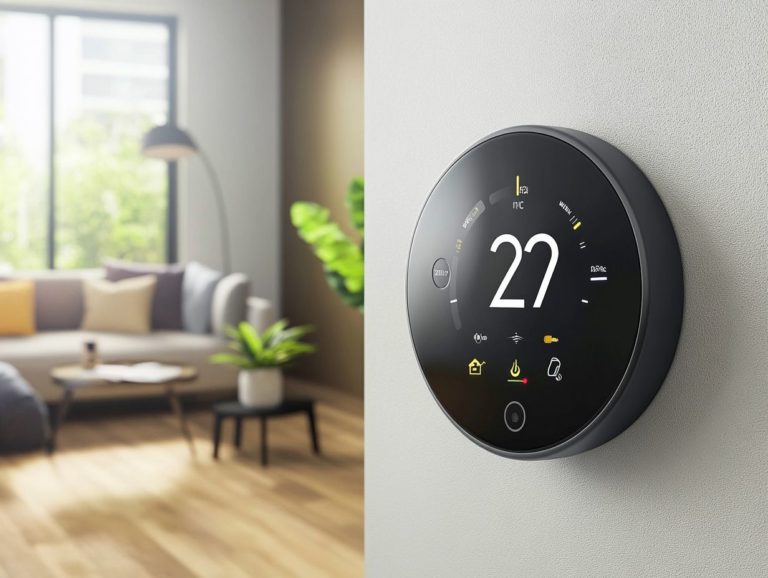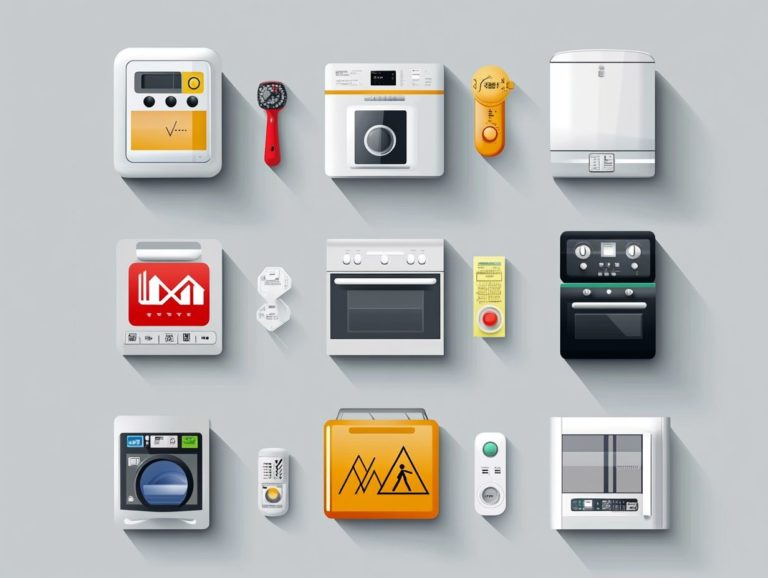How Does Energy Efficiency Impact Resale Value?
In today’s landscape, energy efficiency and sustainability in homes is far more than a mere trend; it’s a vital consideration that impacts your comfort and financial well-being.
This article explores the benefits of energy-efficient homes, including their marketability and community impact. Here are some key advantages:
- Reduced utility bills
- Smaller environmental footprint
- Improved quality of life
You’ll discover how energy efficiency plays a crucial role in enhancing your home’s resale value, providing valuable insights for both buyers and sellers. Ready to boost your home’s value? Join the conversation as you explore practical upgrades and the lasting benefits of investing in energy efficiency.
Contents
- Key Takeaways:
- The Importance of Energy Efficiency in Homes
- Factors That Affect Resale Value
- Benefits of Energy Efficient Homes
- Improving Energy Efficiency in Your Home
- Assessing the Resale Value of an Energy Efficient Home
- Factors That Influence Resale Value
- Calculating Potential Return on Investment
- Frequently Asked Questions
- What is energy efficiency and how does it impact resale value?
- What are some examples of energy-efficient features that can increase resale value?
- Does energy efficiency only impact the resale value of newer homes?
- How much of an impact does energy efficiency have on resale value?
- Can investing in energy efficiency actually save money in the long run?
- Are there any other benefits of having an energy-efficient home besides increased resale value?
Key Takeaways:
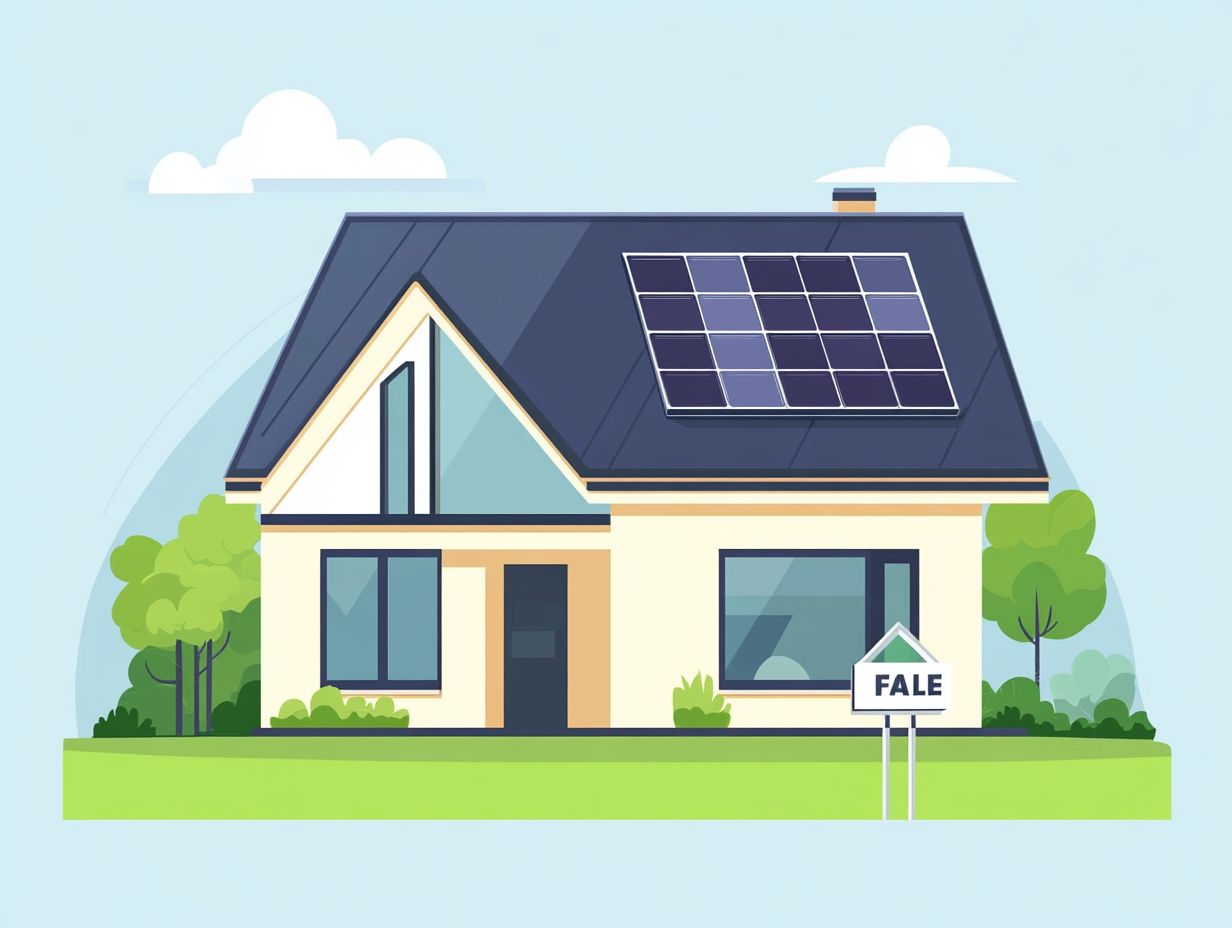
- Energy-efficient homes have a higher resale value due to their cost-saving benefits and positive impact on the environment.
- Home buyers consider energy efficiency a key factor when making purchasing decisions, making it a valuable selling point for sellers.
- Small changes and long-term investments in energy efficiency can significantly increase the resale value of a home and provide a potential return on investment.
The Importance of Energy Efficiency in Homes
Energy efficiency in homes isn’t merely a passing trend; it’s a fundamental principle of modern construction, especially in the area of eco-friendly construction. As a property owner, you re likely becoming more attuned to its significance, thanks to the numerous financial benefits and tax incentives it brings, such as lower utility bills and increased property value.
Energy-efficient homes are thoughtfully designed with sustainable elements, including high-efficiency heating, ventilation, and air conditioning (HVAC) systems, top-tier insulation, and efficient windows. These features dramatically reduce energy costs and minimize environmental impact.
ENERGY STAR certifications and energy performance ratings such as LEED and BREEAM enhance the appeal of these homes to eco-conscious buyers, fostering not only personal comfort but also advancing broader community development objectives and eco-friendly initiatives.
Understanding Energy Efficiency and Its Impact
Understanding energy efficiency means recognizing how various components like HVAC systems and insulation play a pivotal role in making your home more eco-friendly, ultimately leading to significant energy savings.
These elements work together seamlessly to minimize wasted energy, ensuring that your home not only consumes less power but also maintains a comfortable living environment. This insight becomes particularly valuable when considering a professional assessment and energy audit, which evaluate how efficiently your home operates and highlight opportunities for improvement.
Such assessments can reveal areas where your energy usage can be optimized, ultimately resulting in lower utility bills.
Homes with ENERGY STAR certifications reflect a strong commitment to sustainability, establishing performance standards that enhance their market appeal and overall value. By prioritizing energy efficiency, you re not just contributing to a healthier planet; you re also making a smart investment in your property’s future.
Factors That Affect Resale Value
Numerous factors can profoundly impact the resale value of a home, especially when it comes to energy-efficient properties that attract both discerning sellers and environmentally conscious buyers.
By grasping these elements, you can strategically position your home in the market, maximizing your financial returns and long-term cost efficiency when it s time to sell.
Key Considerations for Home Buyers
When evaluating properties as a home buyer, focus on key considerations like energy efficiency and its financial benefits.
Understanding energy performance ratings, such as Energy Star certification, helps you see how well a home uses resources. Don’t overlook eco-friendly features like solar panels and high-efficiency HVAC systems; they reduce energy consumption.
Focusing on these factors enhances your comfort and leads to savings on utility bills over time. Such choices result in smarter financial decisions and long-term cost efficiency.
How Energy Efficiency Plays a Role
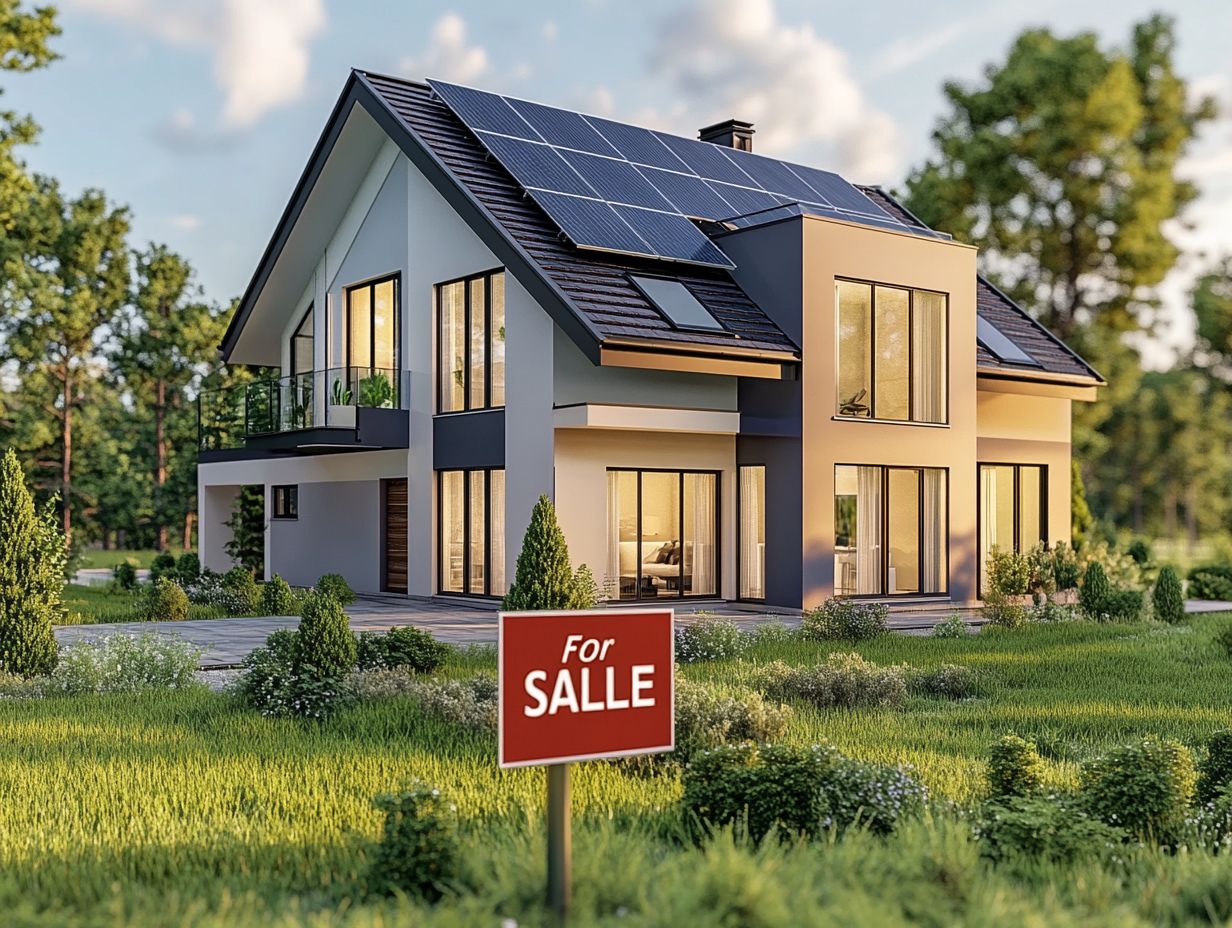
Energy efficiency significantly affects your property’s value and resale potential. Energy-efficient homes are increasingly popular among eco-conscious buyers.
This trend highlights not just environmental benefits but also real financial perks. Homebuyers are actively seeking properties that promise lower utility bills and a reduced carbon footprint.
Investing in energy-efficient upgrades like superior insulation and smart thermostats enhances your property s desirability. These improvements attract more buyers and can lead to higher offers when you decide to sell.
Benefits of Energy Efficient Homes
Energy-efficient homes offer numerous advantages, including savings on utility bills and a positive impact on the environment. Living in such homes also improves your comfort and quality of life.
If you re looking for sustainable features, energy-efficient homes blend practicality with eco-consciousness.
Savings on Utility Bills
One of the immediate benefits of owning an energy-efficient home is the savings on utility bills. These savings significantly lower your overall energy costs.
Effective insulation keeps indoor temperatures comfortable, reducing the workload on heating and cooling systems. When you upgrade your HVAC systems with high-efficiency models, you ll notice a big drop in energy use.
Homeowners can save around 30% on energy costs annually, translating to about $500 in savings each year. These improvements benefit both the environment and your long-term financial wellbeing.
Environmental Impact
The impact of energy-efficient homes on the environment is significant. They promote eco-friendliness and encourage the use of renewable energy sources.
These homes often feature innovative designs and materials that cut energy use and reduce carbon footprints.
By adopting energy efficiency measures, you contribute to a more sustainable community and foster a sense of environmental responsibility. Integrating renewable energy systems like solar panels further amplifies these benefits.
This transition helps combat climate change and boosts local economies through job creation in the green sector.
Comfort and Quality of Life
Energy-efficient homes do more than just trim your utility bills; they elevate your comfort and enhance your quality of life through cutting-edge HVAC systems and sustainable features.
By employing top-notch insulation and smart thermostatic controls, these residences ensure an ideal indoor climate year-round. Whether you’re facing the sweltering summer heat or the cold winter chill, you’ll stay comfortable.
Enhanced air quality is a hallmark of these homes, thanks to advanced filtration systems and energy recovery ventilators that cut down on allergens and pollutants.
Thoughtful design elements minimize outside noise, creating a tranquil oasis.
Collectively, these attributes enrich your living experience, making daily life not just more enjoyable, but also blissfully stress-free.
Improving Energy Efficiency in Your Home
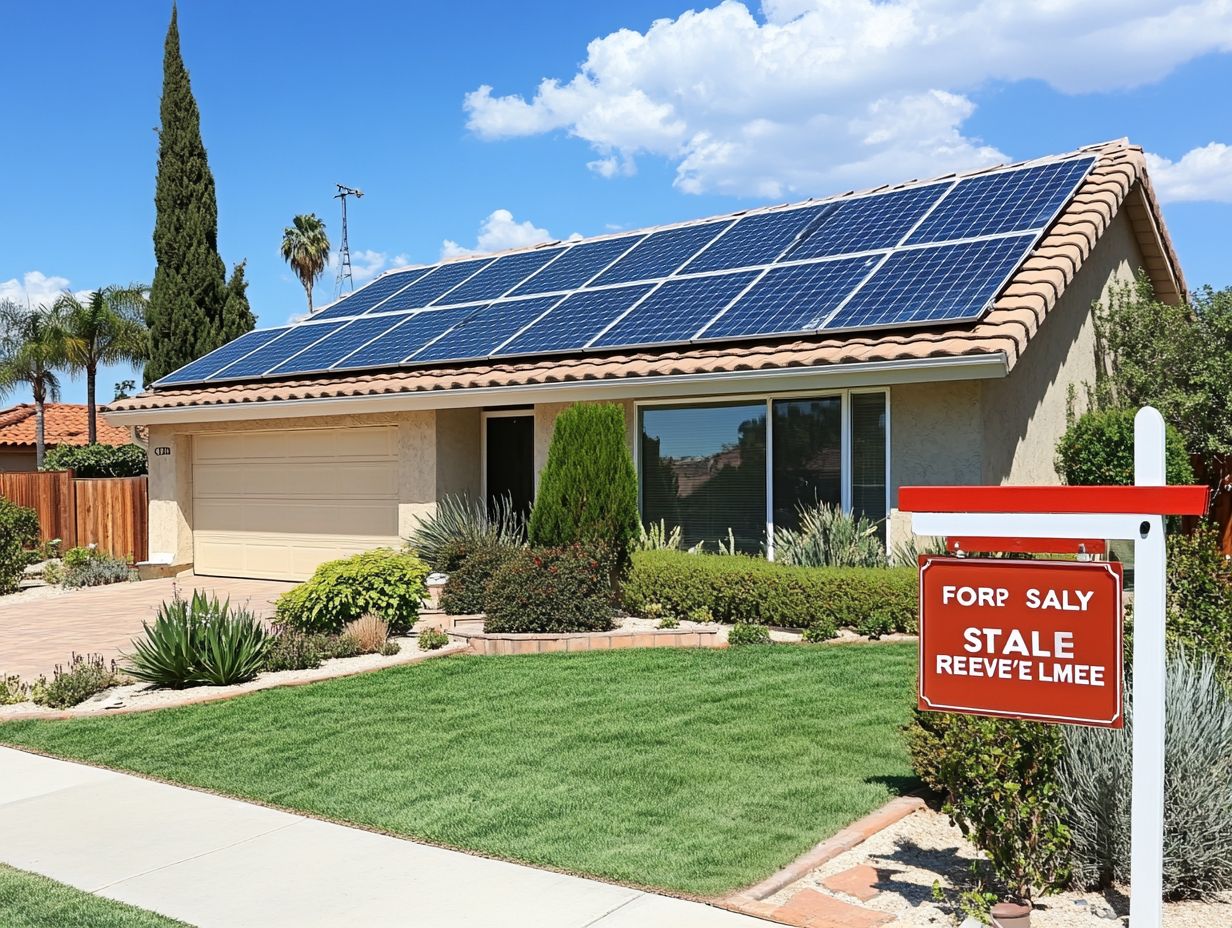
Enhancing energy efficiency in your home is within reach with a range of thoughtful upgrades. Consider installing high-efficiency appliances, upgrading your lighting to energy-conscious options, and getting a home energy check.
This will help you pinpoint long-term investments that can significantly reduce your energy consumption and costs.
Simple Changes and Upgrades
Simple changes and upgrades work wonders in enhancing your home’s energy efficiency. From effective insulation and air sealing to incorporating ENERGY STAR-rated appliances, there are many options available.
Focus on these practical steps to reduce your utility bills and create a more comfortable living environment. For instance, improving insulation in your attic and walls can effectively prevent heat loss during winter, allowing your home to stay warm without overburdening your heating system.
Additionally, sealing leaks around windows and doors minimizes drafts, helping you maintain a stable indoor temperature.
Swap out those old appliances for high-efficiency models now to save on energy bills! These straightforward solutions lead to long-term savings and enhance your property value, making them investments worth considering.
Long-Term Investments
Investing in long-term energy-efficient upgrades, like HVAC improvements and geothermal systems, slashes your energy costs and elevates the sustainability of your home.
Consider enhancements such as installing energy-efficient windows, adding proper insulation, or integrating smart home technology that allows you to monitor and manage your energy usage effectively.
As a homeowner, these investments lead to significant savings on your monthly utility bills while bolstering your property s value over time.
Making your home energy-efficient not only saves you money but also helps the planet! Reduced energy consumption is directly tied to a lower carbon footprint. Additionally, the impact of renewable energy on property value can enhance your home’s worth. These investments pay off significantly in savings and comfort quickly!
Assessing the Resale Value of an Energy Efficient Home
Evaluating the resale value of an energy-efficient home requires a nuanced understanding of several factors that enhance its attractiveness to eco-conscious buyers and impact the potential return on investment (ROI).
Factors That Influence Resale Value
Numerous factors influence the resale value of energy-efficient homes, including location, market conditions, and sustainable features that attract eco-conscious buyers.
In today’s environmentally aware marketplace, homes equipped with energy-efficient appliances, solar panels, and superior insulation are especially in demand. These attributes lower utility costs for future occupants and elevate a home’s overall appeal, perfectly aligning with the growing trend towards sustainability. Understanding how energy efficiency saves money can further highlight the benefits of these features.
As you become more informed about energy consumption and its environmental impacts, you’ll discover that homes with eco-friendly features often command higher prices and sell more quickly. Areas with policies that support green initiatives or offer tax incentives for energy-efficient upgrades are seeing a notable surge in demand, significantly enhancing the marketability of homes that meet these desirable criteria.
Calculating Potential Return on Investment
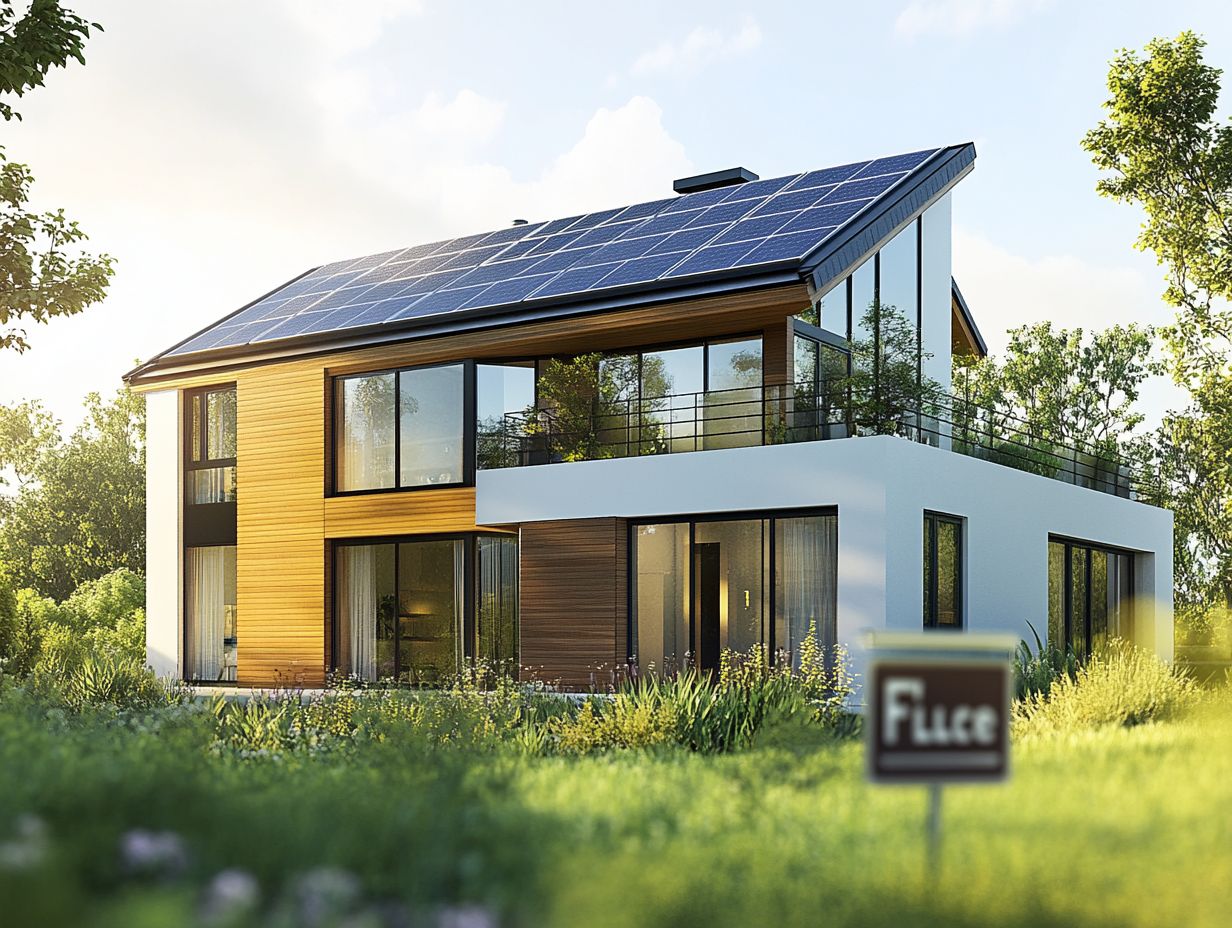
Calculating the potential return on investment (ROI) for energy-efficient home upgrades involves analyzing your initial expenditures against the financial benefits you stand to gain, particularly regarding increased market value.
Start this process by pinpointing specific upgrades, such as installing energy-efficient windows or a high-efficiency heating and cooling system. For example, if you install Energy Star-rated windows, the project might cost around $10,000. However, this upgrade could lead to annual savings of about $500 on your energy bills. Over a decade, that adds up to around $5,000 in savings, plus a potential increase in your property’s value by around $15,000 in competitive markets.
By weighing these savings against the upfront costs, you ll clearly see how these investments enhance your comfort and sustainability and elevate your home s appeal when it s time to sell.
Frequently Asked Questions
What is energy efficiency and how does it impact resale value?
Energy efficiency means using less energy to keep your home comfortable. It impacts resale value by reducing energy costs and increasing the overall value of the property.
What are some examples of energy-efficient features that can increase resale value?
Examples include energy-efficient windows, insulation, heating and cooling systems, and energy-efficient appliances.
Does energy efficiency only impact the resale value of newer homes?
No, energy efficiency can affect the resale value of any home, regardless of age. It s never too late to make energy-efficient upgrades to improve your home s value.
How much of an impact does energy efficiency have on resale value?
Energy efficiency can boost resale value, typically making homes sell for 3-5% more than similar homes without energy-saving features.
Can investing in energy efficiency actually save money in the long run?
Yes, investing in energy efficiency can save money over time by reducing energy costs. These savings contribute to the overall value of the property.
Are there any other benefits of having an energy-efficient home besides increased resale value?
Yes, energy-efficient homes not only increase resale value but also positively impact the environment by reducing carbon emissions. They can also provide a more comfortable and healthier living space for occupants.
Ready to boost your home s value with energy-efficient upgrades? Contact a professional today to learn more!

